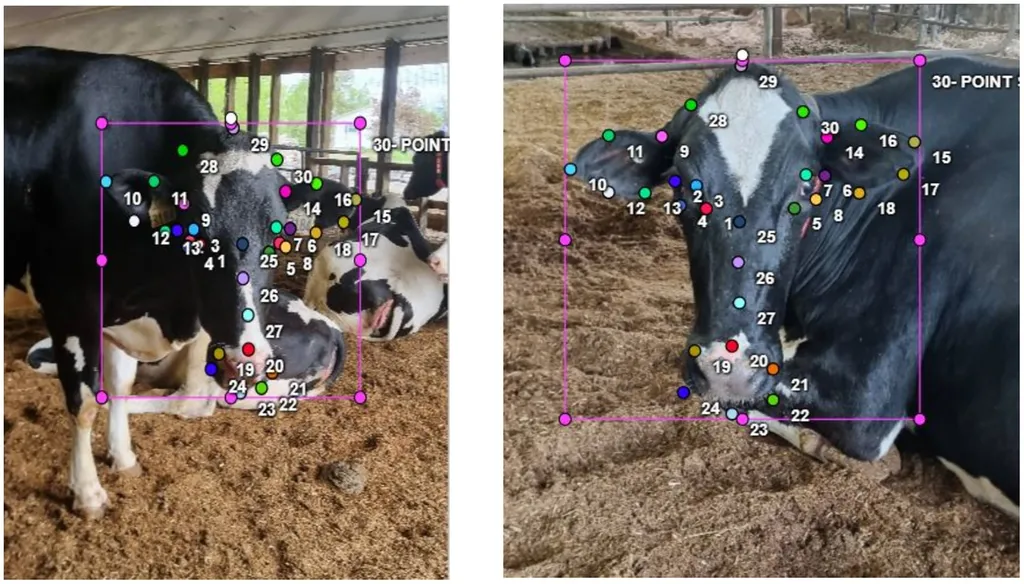In the rapidly evolving world of precision agriculture, a groundbreaking framework developed by researchers at Dalhousie University is set to revolutionize cattle farming. Shubhangi Mahato, a lead author affiliated with the Faculty of Computer Science at Dalhousie University, has introduced Dairy DigiD, an edge-cloud AI framework designed to bridge the gap between advanced AI algorithms and practical, real-world applications in livestock farming.
Dairy DigiD addresses critical challenges in digital livestock farming, including computational constraints, connectivity issues, and user accessibility barriers. The framework integrates YOLOv11 object detection with DenseNet121 physiological classification, enabling real-time cattle monitoring. “Our system employs YOLOv11-nano architecture optimized through INT8 quantization, achieving 73% model compression with less than 1% accuracy degradation,” Mahato explains. This optimization allows for 24 FPS real-time inference on NVIDIA Jetson edge devices, maintaining an impressive 94.2% classification accuracy.
One of the key innovations of Dairy DigiD is its intelligent confidence-based offloading. Routine detections are processed locally at the edge, while ambiguous cases trigger cloud processing for enhanced accuracy. This approach not only ensures high performance but also reduces energy consumption by 18% compared to baseline implementations. “We’ve developed an entropy-based active learning pipeline using Roboflow that reduces annotation overhead by 65% while preserving 97% of the model performance,” Mahato adds.
The framework’s user-friendly Gradio interface democratizes system access, reducing technician training requirements by 84%. Comprehensive validation across ten commercial dairy farms in Atlantic Canada has demonstrated robust performance under diverse environmental conditions, achieving a mean average precision (mAP) at 50% intersection over union (IoU) of 0.947 with balanced precision-recall across four physiological classes.
Published in the journal ‘AI’ (Artificial Intelligence), this research provides a replicable blueprint for precision livestock farming adoption. By addressing practical barriers that have historically limited AI deployment in agricultural settings, Dairy DigiD offers a systems-level integration methodology that transforms research-grade AI into deployable agricultural solutions.
The implications of this research are far-reaching. As the agricultural sector increasingly turns to technology to enhance efficiency and sustainability, frameworks like Dairy DigiD pave the way for smarter, more connected farming practices. By enabling real-time monitoring and health classification of cattle, farmers can make data-driven decisions that improve animal welfare and productivity. This not only benefits individual farmers but also contributes to the broader goal of sustainable agriculture.
In the future, we can expect to see more integrated AI solutions like Dairy DigiD being adopted across various sectors of agriculture. The framework’s success highlights the potential of edge-cloud AI systems to overcome traditional deployment challenges, opening up new possibilities for precision farming. As Mahato and her team continue to refine and expand their work, the agricultural industry stands to gain significantly from these advancements.

